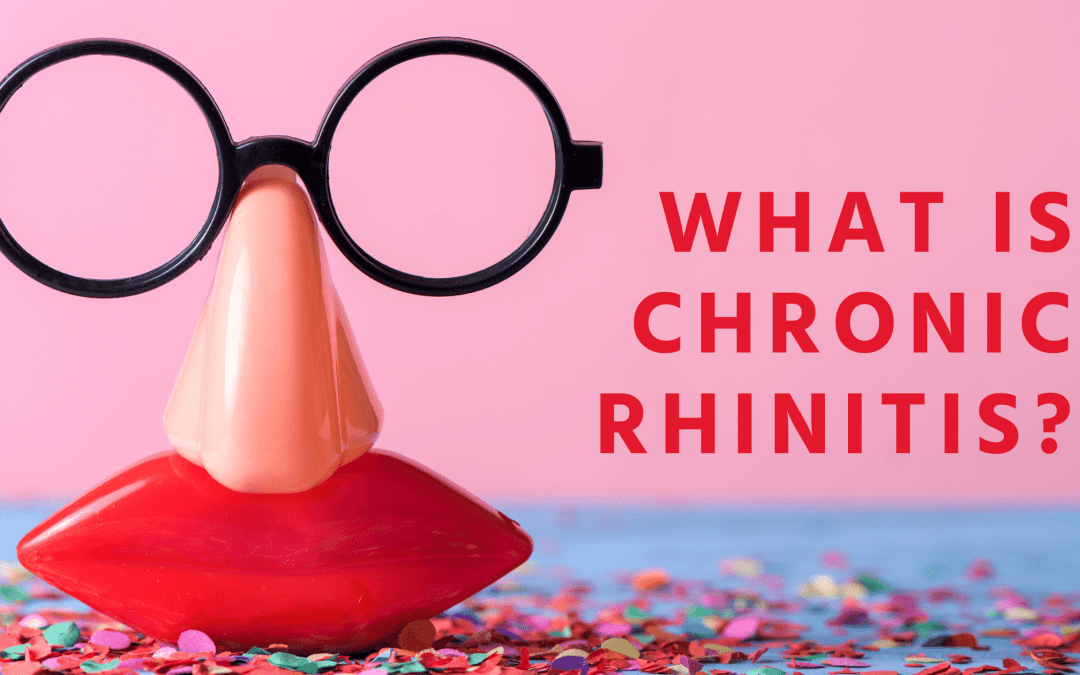Rhinitis is the inflammation of the mucous membrane that lines the nose. This swelling produces symptoms commonly associated with allergies and the common cold: runny nose, stuffiness, congestion, and sneezing. There are different causes which can be experienced acutely (temporary) or chronically.
Chronic rhinitis is that which persists three months or longer, impacting daily life and wellness. According to the Asthma and Allergy Foundation of America, more than 50 million people experience various types of allergies every year. Knowing the source of your allergies, reducing exposure, and treating symptoms can significantly reduce the impact of chronic rhinitis.
Common Causes
The causes of rhinitis can be categorized as allergic or non-allergic and include the following:
- Allergic Rhinitis: also known as hay fever, this form of rhinitis is produced by the body’s immune system responding to a specific environmental trigger, known as an allergen. The immune system accidentally identifies a substance (the allergen) as a threat, activating its response system to neutralize it. This involves releasing antibodies which then detect the allergen whenever you experience it, releasing chemicals like histamine into your bloodstream. This then produces the symptoms commonly associated with allergies. People can come into contact with an allergen in a variety of ways: ingesting, inhaling, touching, or injecting into the body. The most common type of allergen is pollen, which causes seasonal allergies. Other sources of allergic rhinitis include pet dander, mold, and fungi.
- Non-Allergic Rhinitis: less common, non-allergic rhinitis accounts for about one fourth of all rhinitis cases. This type is not caused by the body’s immune system but instead by impacted blood vessels in the nose, leading to congestion. Non-allergic triggers often include: chemicals with strong odors (detergents, perfumes), tobacco, pollution, and weather changes. Non-allergic rhinitis can also be caused by viral infection like the common cold.
Allergic and non-allergic rhinitis produce similar symptoms: runny nose, stuffiness, sneezing, post-nasal drip, itchy/watery eyes. This can be self-managed using a combination of methods.
Treating Chronic Rhinitis
There is a wide range of over the counter medications and natural remedies that people often use to alleviate symptoms. Nonprescription medications include:
– Antihistamines: taken orally to alleviate allergy symptoms. Examples include: Claritin, Zyrtec, Allegra, etc.
– Decongestants: intended to alleviate nasal congestion specifically and can be taken either orally or via nasal spray.
Antihistamines and decongestants are often combined to comprehensively tackle symptoms and provide relief. Additionally, there are various forms of home remedies that people incorporate to alleviate symptoms. These include:
– Rinsing nasal passages with saline solution to reduce congestion. There are different tools used to do this like a neti pot.
– Facial steaming: steam from boiling water, humidifier, or other machine helps drain the mucus that has accumulated in the nose and caused congestion.
– Drinking tea, herbal mixtures, honey etc. to alleviate irritation of the throat.
If there are structural issues that are contributing to chronic rhinitis, surgery may be a treatment option. Issues like a deviated septum can impact sinuses and be corrected through surgery.
Tips to Manage Rhinitis
In addition to identifying the source of your allergies, there are numerous ways to manage rhinitis that minimize its impact. A few tips include:
– Pollen is the most common cause of rhinitis so it is important to be aware of the pollen count! Regularly check weather projections so you know when pollen is high. This can help you better prepare by taking necessary medications in advance.
– Keep windows and doors closed when pollen is high, avoid being outdoors
– Keep the air in your indoor environment as clean as possible by vacuuming regularly, using a dehumidifier, consistently replacing air conditioning filters etc.
– Find the most effective combination of over the counter medications and natural remedies that works for you. This can take some experimenting!
Navigating chronic rhinitis can be challenging, especially during spring and summer months when pollen is most pervasive. Consistently dealing with symptoms can be unpleasant and disruptive. Taking the time to establish the most effective treatment plan that alleviates your symptoms can drastically improve your experience of rhinitis. Additionally, reducing your exposure to allergens and prioritizing your health in this way can enhance overall wellness!
If you are struggling with chronic rhinitis, contact us today! We provide comprehensive ENT services and we’re here to help.

